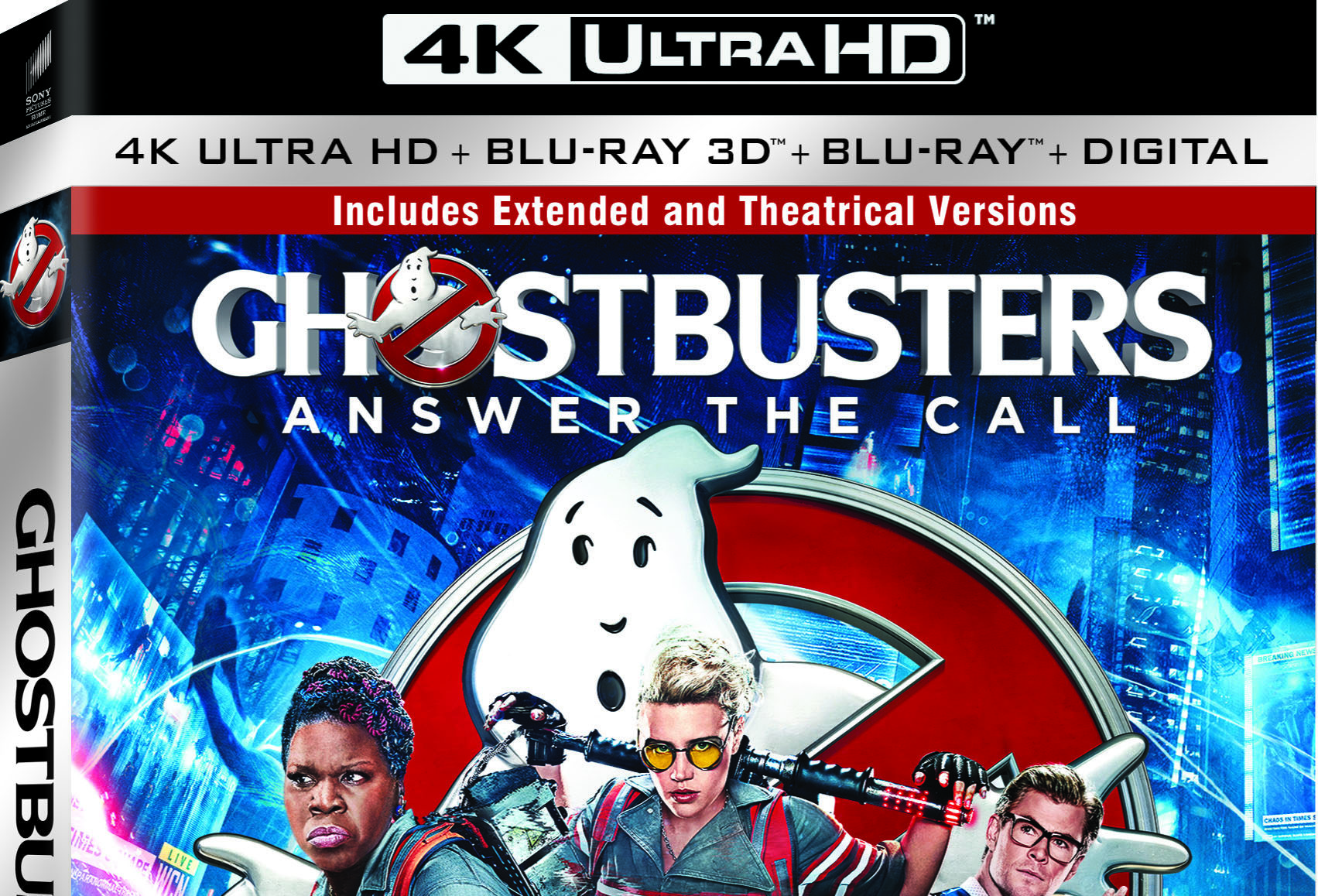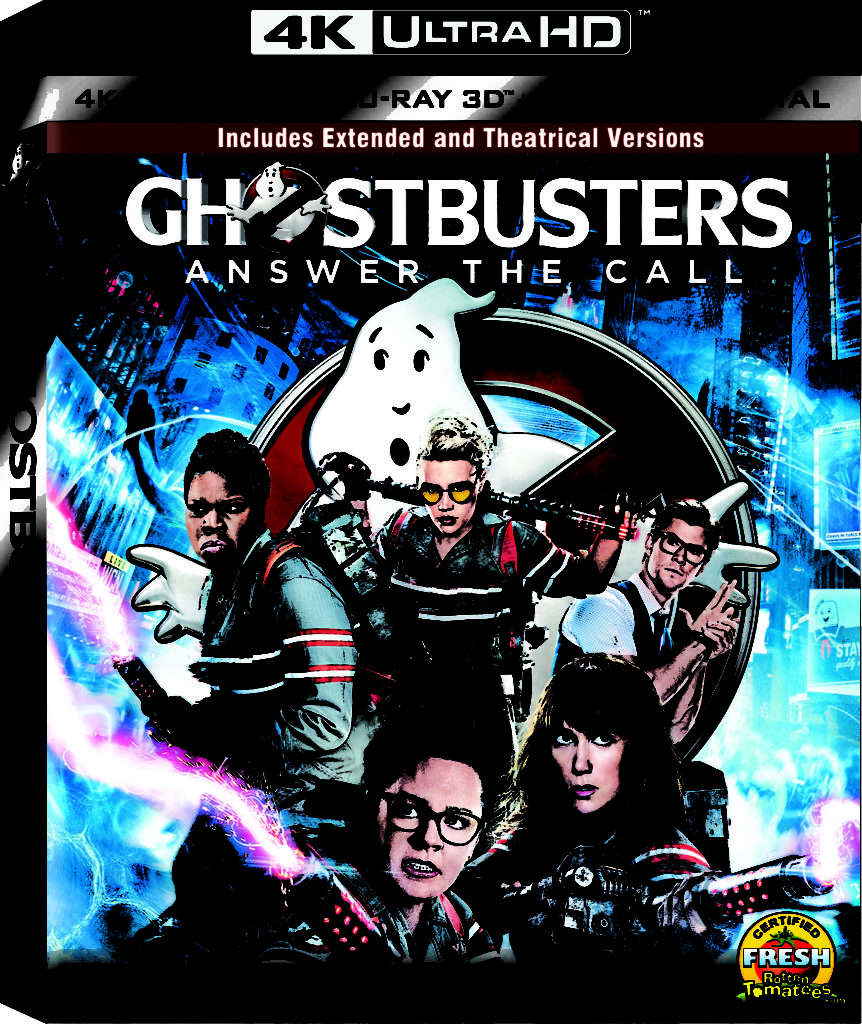M+E Connections

Director Feig Talks Bonus Features, 4K, Dolby Vision
Story Highlights
In just the last year, director Paul Feig (“Bridesmaids,” “Spy”) has been charged with overseeing the theatrical remake releases for two beloved franchises: “Peanuts” and, most recently, “Ghostbusters” (which comes out on disc from Sony Pictures Home Entertainment Oct. 11).
Along with the pressures associated with making something new out of older properties with big fan bases, Feig also recently discussed the benefits of bonus features, the possibilities of 4K and virtual reality, and whether or not filmmakers are OK with early digital releases of their films.
MESA: With your last two projects — “The Peanuts Movie” and now “Ghostbusters” — these are really beloved properties. How do you balance creating something new and unique, while staying true to what everyone loved about them in the first place?
Feig: This is really my first dip into pre-existing intellectual property if you will, and I’m just a giant fan of both of them. For ‘Peanuts’ it was about protecting the property, making sure it didn’t get modernized in a way that would ruin its charm. For that one it was about sticking really close to what Charles Shultz had created, the beloved TV specials and all that, even trying to recreate the kids’ voices. On top of that I was working with an estate that had final say over everything. The great thing was we were all in lock step with what we wanted and what we didn’t want. It was just then trying to make it our own while keeping it what people know.
‘Ghostbusters’ on the other hand, I’m an enormous fan of that as I am of ‘Peanuts,’ I love the original property, and obviously I love the original movie. I really resisted for a very long time, until I had lunch with Amy Pascal, who was still head of Sony, and she was kind of pushing me: ‘This great franchise is sitting there,’ but I was going through all the reasons that everyone in comedy scared to touch such a sacred thing. But I walked away going ‘there this is such a great franchise, such a great idea, of funny people fighting the paranormal with science and weaponry. It’s a great idea, and so I thought if I had to do it, what would I do? I think — except for the hard-core haters, which are never going to be happy with anything we do — I think anyone who’s a fan of the original movies is really going to appreciate our reverence to the original material, but that we take it, make it our own, and bring it to a new generation.
MESA: Deleted scenes are part of what’s helping to keep DVD and Blu-ray relevant today, the bonus features. How early on do you keep things like making-of featurettes, commentaries, those sorts of things in mind?
Feig: We’re very aware of it, that’s why I always have a full-time EPK crew with us, people that we hire who document every single moment, and I always try to pick out EPK people who have comedy experience, who’ve done comedy shorts and that kind of thing, because then I can deputize them to collect material for comedy reels, and encourage them to come to me with ideas, anything from different quizzes they do with the actors and the crew. On ‘Bridesmaids’ we did a bunch of fake commercials. I encourage everyone to gather as much stuff as they can, because I’m a huge fan of the DVD and Blu-ray extras, because there’s such a short window where the movie gets seen [theatrically], but the whole movie lives on and on in the after market. And as much as we all make movies for the big screen, it’s crazy to not consider the rest of it.
What I loved when DVDs came into the world, was that a filmmaker before that, whether it was TV or movies, is you always have too much stuff, and it was so hard to cut out stuff that you loved, because it was gone forever, nobody got to see it, nobody would get to see that funny joke or moment. But if I did leave it all in the movie, the movie would be just too long, too many jokes lined up, and while funny on their own, very much a hindrance, slowing down the story. Suddenly having the ability to say, ‘Hey, we’ll just throw them in the [disc].’

MESA: Along those lines, post theatrical, especially the last few years, studios have really thrown their weight behind early digital, getting a film out weeks before it’s available even on disc. Are you a fan of this early digital offering, is this something that’s good for filmmakers?
Feig: I’m a fan of anything that gets your movie seen. But what I really think it benefits are the movies that people aren’t necessarily rushing out to the theaters to see. I’m still a big fan of event movies, and just as a filmmaker you want people to have a group experience. I do comedy, so that’s why I want a room full of people laughing and hearing other people laugh, and that’ll make them laugh more.
When we’re viewing post on the movie, that’s why I’m doing so many test screenings, because we’re really conducting for that live audience. But at the same time, we’ll overload stuff, because I love when people see one of my movies and say they laughed so much, they want to see it again. And, secondly, when it goes on to play for eternity on cable and on TV screens, you want to have it dense. There’s nothing worse than watching an old comedy and there are these pauses, where they were literally holding for the laugh. It makes it feel so slow, vs. where when it’s loaded up, they’re going to hear what they’re going to hear. As far as VOD releases at the same time [as theatrical] I do think it’s a great idea, but it depends on the film.
Any film that’s more personal or that can be experienced without a crowd, it’s great. Though there’s this other side of me that looks at everyone getting these home theater systems that are so great, it would be nice if there was a [way] that you could go: ‘Look, for $200, on opening weekend of ‘Star Wars,’ you can have it in your house, invite as many people as you want, and have a group experience there. Somebody at the studio needs to be brave enough to do that, though I know that the distributors would never like that.
MESA: 3D, 4K, higher frame rates, even VR now … which of these things are actual tools in the toolbox for a filmmaker, and which are just distractions?
Feig: I think they’re all good, it’s just the story has to match the medium. Anything that makes you think of different ways to tell a story, I think is great. The only bad thing is when someone forces a project into a medium, and as a filmmaker you know this doesn’t work with that at all. When you want to occasionally use black and white instead of color, if the movie fits it, and the tone of the movie fits it, it’s the greatest thing in the world, but to just do it randomly: ‘Star Wars,’ black and white, OK that was weird.
I’m a big fan of filmmakers having all the tools they can, and I’m always, desperately trying to figure out what’s the next technology, what’s coming up. I got a demonstration of Dolby Vision, and it’s just unbelievable.









